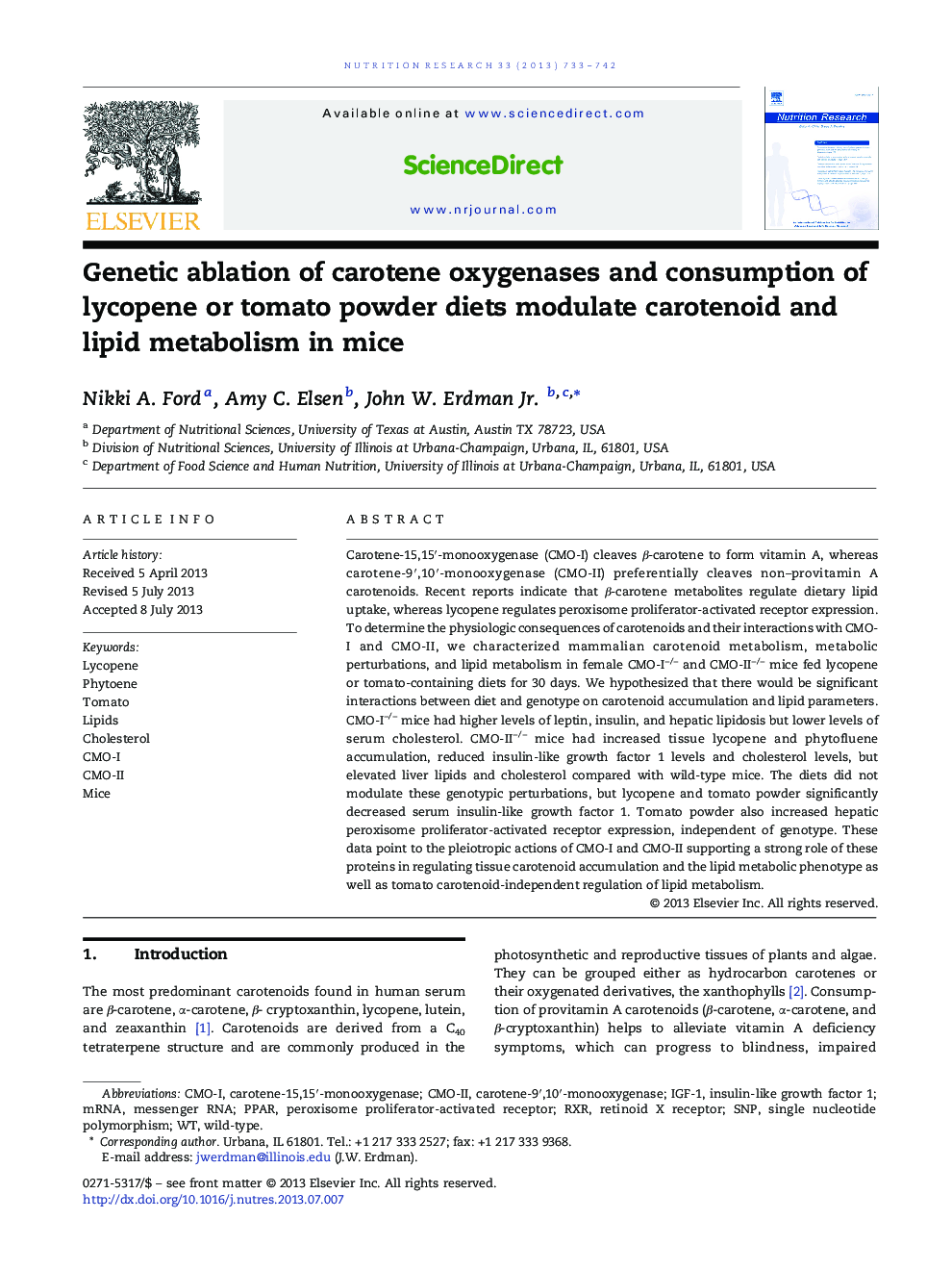| Article ID | Journal | Published Year | Pages | File Type |
|---|---|---|---|---|
| 2809073 | Nutrition Research | 2013 | 10 Pages |
Carotene-15,15′-monooxygenase (CMO-I) cleaves β-carotene to form vitamin A, whereas carotene-9′,10′-monooxygenase (CMO-II) preferentially cleaves non–provitamin A carotenoids. Recent reports indicate that β-carotene metabolites regulate dietary lipid uptake, whereas lycopene regulates peroxisome proliferator-activated receptor expression. To determine the physiologic consequences of carotenoids and their interactions with CMO-I and CMO-II, we characterized mammalian carotenoid metabolism, metabolic perturbations, and lipid metabolism in female CMO-I−/− and CMO-II−/− mice fed lycopene or tomato-containing diets for 30 days. We hypothesized that there would be significant interactions between diet and genotype on carotenoid accumulation and lipid parameters. CMO-I−/− mice had higher levels of leptin, insulin, and hepatic lipidosis but lower levels of serum cholesterol. CMO-II−/− mice had increased tissue lycopene and phytofluene accumulation, reduced insulin-like growth factor 1 levels and cholesterol levels, but elevated liver lipids and cholesterol compared with wild-type mice. The diets did not modulate these genotypic perturbations, but lycopene and tomato powder significantly decreased serum insulin-like growth factor 1. Tomato powder also increased hepatic peroxisome proliferator-activated receptor expression, independent of genotype. These data point to the pleiotropic actions of CMO-I and CMO-II supporting a strong role of these proteins in regulating tissue carotenoid accumulation and the lipid metabolic phenotype as well as tomato carotenoid-independent regulation of lipid metabolism.
